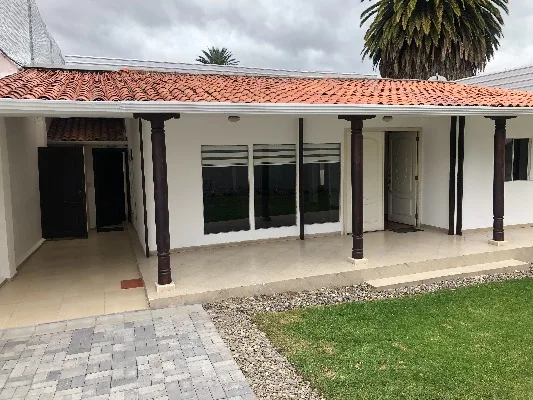A taxing question
I’ve seen a lot lately about more brick-and-mortar stores closing in the United States. Today, The Bon-Ton Stores, after filing for bankruptcy in January, announced it is heading into liquidation. For those who don’t know, the 160 year-old company has 260 stores in 24 states. They will officially close the stores in 10 to 12 weeks.
officially close the stores in 10 to 12 weeks.
Toy’s R Us, a store most of us have bought things from for our children, nieces and nephews, or even grandchildren, has started closing 800 of its stores across the U.S.
Across the U.S., more than 7,000 brick-and-mortar stores closed in 2017. Yes, many of these were mom-and-pop stores (not that it matters), but that number also included The Limited and Radioshack. Other chains like Sears, J.C. Penny and Macy’s have all closed many of their locations.
Is any retail group growing? Well, Dollar General and Dollar Tree made up most of the 3,433 retail locations that did open in 2017. Now that’s a disturbing trend.

JC Penney has closed dozens of its stores in the U.S.
Where has all the business gone? Well, the Internet of course. And a very large portion of it has gone to Amazon, whose revenues grew from $136 billion in 2016 to $178 billion in 2017. Its revenue projections for 2018 are more than $201 billion.
Now imagine this, Amazon, who has had a huge hand in almost bringing Best Buy to its knees, has announced a partnership with the retailer to “exclusively sell Amazon Fire-edition smart televisions.”
It seems Amazon has realized it needs to have a hardware platform to really disperse Fire TV as far and wide as possible. Best Buy is going to sell ten different kinds of smart TVs with Amazon Fire built in. You’ll find them in Best Buy’s own brand Insignia, and in other Toshiba models.
This really isn’t an aberration in Amazon’s plans though; they also recently opened 15 Amazon bookstores and,through their acquisition of Whole Foods, they now have 479 grocery stores they are delivering products through.
All of this illustrates a major change in the retail landscape. They way things are bought and sold throughout the developed world has changed drastically with the integration of the Internet into everything we do. But unfortunately, another landscape has failed to keep up with that change: tax codes in the U.S.
President Trump has made Amazon a target for his criticism over how much it pays in taxes (and also its deal with the United States Postal Service). Some people claim that this is because Jeff Bezos, Amazon’s CEO, also owns The Washington Post. Throughout the 2016 Presidential election and through the president’s first 15 months in office, The Washington Post has been extremely critical of the President and his administration. If that really is what started his war with Amazon, then I find that disturbing. The 1st Amendment is as important as the 2nd Amendment. He needs to keep that in mind.
That aside, I do agree with the president on his criticism for the way Amazon collects and pays sales tax. Like the president, many economists feel that by not having to collect sales tax on products it sells from other companies, it is effectively crippling the rest of the retail industry in the United States.
Does Amazon cheat? Well, no. They follow the current tax codes. You can be sure that with all the lawyers that Amazon has, how they pay taxes is probably more scrutinized than any other part of its business. And while Amazon is the big name in all of this, they are not alone. It is an Internet issue, not just an Amazon issue.
And now this issue is resting in the laps of the Supreme Court. South Dakota has brought a case to the United States Supreme Court challenging a 1992 ruling that said that states cannot collect sales tax from retailers unless they have a physical presence in the state (interestingly, they are actually bringing the case against Wayfair and Newegg, not Amazon).
Right now, it looks the Supreme Court is going to uphold that previous decision. And there isn’t a clear answer as to who would be the winners and losers in this.
The states argue that the increase in sales tax will help their budgets and protect small business from the pressures that Internet (tax-free) sales put on their businesses.
But anti-tax crusader Grover Norquist said this this week that overturning the 1992 decision would benefit companies like Amazon and Wayfair. He claims that small business will not be able to handle the new tax implications on their own and will have to turn to selling their products through the big guys.
“There are about 10,000 taxing jurisdictions, meaning about 10,000 different rules to follow, he said.” Norquist believes that many small businesses would have to go on someone else’s website that has the appropriate software. “Only really big characters in the market would be able to manage this and smaller people would have to pay for that ability.”
So who is right and who is wrong? I’m no expert, but Norquist’s argument sounds a little weak to me. From watching the change in the retail landscape over the last 5 years, I do believe Amazon (who by the way, I love buying things through) has been growing exponentially with a huge tax advantage in its business model. And I think that if the law is changed, some entrepreneurial company will create software for these small businesses that will solve the tax jurisdiction issue.
To me, it seems the states should have the right to enforce sales taxes on items sold through the Internet to people living within their borders. Now, I’m sure that some of you don’t believe that states should be allowed to collect any sales taxes at all. But that’s a debate for another time.
As long as states have the right to collect sales taxes from businesses with physical locations, they should also have the right to collect them from retail sales through the Internet.
And while the Supreme Court may not make that happen during this session, I don’t think this is a concept that is going to go away.
I’m just sayin.’






















